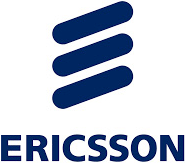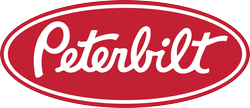Net Promoter: Useful Tool or Outdated Metric?
There has traditionally been a lot of talk in the business community about Net Promoter Score® (NPS) which is known to be a discipline by which companies profitably grow by focusing on their customers and employees. The Net Promoter Score is the subject of a book titled The Ultimate Question by Frederick F. Reichheld. In his book, Reichheld states that the ultimate question for businesses to ask their customers is “would you recommend us to a friend/relative?” He also says that if you ask this “ultimate question” in a regular, systematic, and timely fashion, and then track and publicize the answers and put the information to work right away, you will be on a “path to prosperity and true growth.”
So, should you use Net Promoter Score Surveys? Is NPS the answer to business success? Is it a useful tool or has it become an outdated metric? To answer these questions, let’s start with the “ultimate question.” Reichheld states that all we need to ask our customers is whether or not they would recommend us to a friend or relative. This is a good and important question. Getting customers to recommend us to others is a great, inexpensive way to build our businesses. People tend to trust recommendations from friends and family more than information they obtain from advertisements. However, the issue is not whether “Would you recommend us?” is a good question, the issue is “Is it the only question we need to ask?”
The answer to that question is “Yes and No.” Using the answer to the single question as a continuous stream of real time data from your customers and taking immediate action to rectify any wrongs is an excellent way to maintain market share. In this sense, the ultimate question is used as a safeguard against unexpected terminations of business relationships. It’s not so much the NPS score as the immediate action taken when there are issues. Why is it not enough just to ask whether or not our customers would recommend us to others? Human behavior is very diverse and complex. Think about the answers you would give to the following questions: Why did you choose the college or university you attended? Why did you choose your spouse/partner? What led you to choose the neighborhood you live in? Most likely, you have multiple reasons for each of these questions. Given the fact that human behavior is complex, does it sound logical that we can obtain all the information we need for business success from just one question? Think about it. Whether we learn that our customers will or will not recommend us, where do we go from there? We need to know the reasons behind the answer and unfortunately, the customers themselves may not know the answer to this “why?” question because when asked, they are likely to reply with reasons that are salient at the moment. The good news is that if we ask enough of the right questions, data analysis can reveal the answers to these “why” questions that the customers themselves are not cognizant of, by examining relationships between the various items on a more comprehensive customer survey conducted at regular time intervals, such as quarterly or annually.
A problem with only asking our customers whether they would recommend us is that recommending a business involves personal risk. What happens if I recommend a restaurant and my friends do not like it? Has that ever happened to you? Have you recommended a business to someone and later learned the person had an unsatisfactory experience with that business? When we recommend a business and someone we recommend it to is not happy with their experience, we risk having the person lose faith in our opinion or, worse yet, we risk having that person feel less positively toward us. Thus, this concern about potential risks can serve as a confounding variable that may artificially reduce the score on the “would you recommend?” question. This is why it is very important to have benchmarking information for any NPS or Pulse survey for an objective view of your performance.
Understanding of our customers is definitely a good thing, but to have a more complete knowledge to drive organization wide strategy we need to also know something about the customer’s overall satisfaction and intent to return to our business. Case studies have shown that the scores on measures of “willingness to recommend,” “intent to return,” and “overall satisfaction” can vary considerably. Let’s look at some specific examples from studies conducted by the National Business Research Institute (NBRI). NBRI routinely measures customers’ willingness to recommend, intent to return, and overall satisfaction using customer surveys. These scores are then benchmarked against NBRI’s robust databases. Each company is benchmarked against others in their same NAICS (North American Industry Classification System) or ISIC4 (International Standard Industry Classification) code to reveal a percentile ranking. In one study of a company in the entertainment business, NBRI found that overall customer satisfaction ranked at the 70th percentile, while intent to return and willingness to recommend both ranked at only the 48th percentile, a full 22 percentiles below the ranking for overall satisfaction! If this company had only measured “willingness to recommend” they would have an inaccurate view of how they are perceived by their customers.
In a study of a real estate association, NBRI’s customer survey revealed that overall customer satisfaction ranked very highly, at the 78th percentile. Intent to return however, was slightly below average (the average falls at the 50th percentile) and willingness to recommend was only slightly above the average, at the 55th percentile. A survey conducted with customers of a private club revealed an overall satisfaction ranking at the 84th percentile. These same customers ranked at only the 63rd percentile for intent to return and the 69th percentile for willingness to recommend. The bottom line: willingness to recommend is only one piece of the puzzle and it alone gives you an incomplete understanding of your customers. It is important to conduct Pulse Surveys using more than one question and more comprehensive Customer Surveys at regular intervals.
As stated earlier, Reichheld indicates that if you measure willingness to recommend in a regular, systematic, and timely fashion and then track and publicize the answers and put the information to work right away, you will then be on a “path to prosperity and true growth.” He is partially right in that it is important to survey customers regularly and systematically and you do need to take quick action in order to implement changes based on the data. However, you need to measure more than the customers’ willingness to recommend if you want to be on a “path to prosperity and true growth.” Reichheld oversimplifies customer research when he claims “The Golden Rule of treating others as you want to be treated yourself has a significant place in business. Successful organizations take this rule seriously because it is the basis of loyal relationships. It’s an integral part of how they operate: they want customers who are so pleased with how they are being treated that they not only come back for more, they bring their friends.” While this may sound logical, think of the potential problems with treating all customers the way I like to be treated. What if you don’t like to be treated the way I like to be treated? What is important to one customer may be completely irrelevant to another. A “one size fits all” approach to meeting customer needs is certain to leave many customers with their specific needs unmet.
Net Promoter Surveys alone miss the mark in another important respect. They ignore the importance of employees. People are vital to any business, but if we focus only on customers we are ignoring the fact that our employees play a crucial role in our business success as well. Research has shown that the attitudes and perceptions of our employees influence the attitudes and perceptions of our customers. If we focus only on our customers we may be taking two steps backwards for each step forward that we take. By regularly surveying our customers and employees we can make substantial gains toward growth and success. Many organizations, along with conducting regular Customer Pulse Surveys and Employee Surveys, also conduct Employee Pulse Surveys.
On page 40 of Reichheld’s book, The Ultimate Question, he states that “The jury is still out on what effects NPS (the Net Promoter Score) will have over time.” In fact, Reichheld acknowledges “imperfections” in the analytics that were used to support Net Promoter. He admits that all he did was quantify common sense in a way that made sense to business leaders since they are the target audience for his book. He adds that since these practical leaders have little interest in advanced statistical methods, he saw little value in debating cause versus correlation and statistical methods. So not only is Reichheld advising that companies place the fate of their business success in one score (the NPS) that has not been scientifically proven effective over time, he is also stating that business leaders are not interested in statistically sound data. We disagree; successful business leaders are savvy individuals that understand the importance of valid research data and sound statistics. Reichheld implies that statistics don’t matter. But statistics do matter.
Longitudinal data collected by scientists with nothing to gain or lose by the success of Net Promoter has increased our concerns about this approach alone with no other more comprehensive surveys used by organizations to augment the data. The Journal of Marketing previously published a study conducted by Timothy L. Keiningham, Bruce Cooil, Tor Wallin Andreassen, & Lerzan Aksoy in which they examined Net Promoter and firm revenue growth over time. Their study employed longitudinal data from 21 firms and over 15,500 interviews. The scientists compared Reichheld and his colleagues’ findings with the American Customer Satisfaction Index. Using industries Reichheld cited as exemplars of Net Promoter, their research failed to replicate his assertions regarding the “clear superiority” of Net Promoter compared with other measures in those industries. Ultimately the data led Keiningham and his colleagues to conclude “We find no support for the claim that Net Promoter is the ‘single most reliable indicator of a company’s ability to grow.”
That’s all we need to know to understand that both Customer Pulse Surveys and a more comprehensive Customer Survey conducted at regular intervals is the correct approach.
Wouldn’t it be great if only one score could provide us with the “path to prosperity and true growth?” Unfortunately, if something sounds too good to be true, it usually is. In the case of Net Promoter, scientific data does not back up its claims. Thus, the answer to two of the questions posed earlier is “No.” You should not use Net Promoter as your one and only survey and it alone is not the answer to business success. Now what about the third question, “is it a useful tool or an outdated metric?” Many large companies have derived value from utilizing Net Promoter so it is not an outdated metric. The better path to prosperity and growth is to utilize a combination of scientific tools for measuring customer and employee attitudes (Customer Pulse Surveys, Employee Pulse Surveys, Customer Surveys, Employee Surveys) that have proven successful in decades of research. This will provide you with the depth and scope of information you need to get an accurate forecast of your business. Armed with an accurate forecast, you will be prepared for whatever business conditions await you.
NBRI has been utilizing scientific approaches to business research to help companies in all industries learn more about their customers and employees for over three decades. If you would like to learn more about how NBRI can help your business find the path to prosperity and growth using proven scientific methods, call us today at 800-756-6168.
Net Promoter, NPS, and the NPS-related emoticons are registered U.S. trademarks, and Net Promoter Score and Net Promoter System are service marks, of Bain & Company, Inc., Satmetrix Systems, Inc. and Fred Reichheld.




























 By submitting this form you agree to our
By submitting this form you agree to our